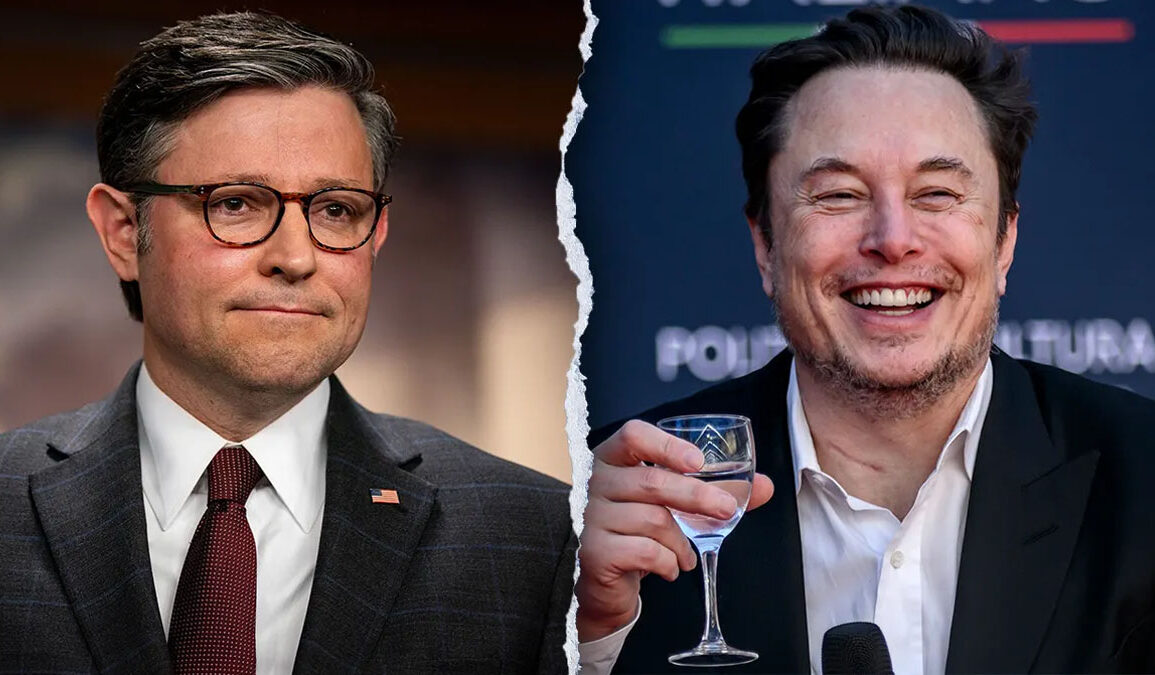Update: Congress passed a stopgap spending bill to prevent a government shutdown and provide over $100 billion in disaster and farm aid, now awaiting President Biden’s signature. The House passed it 366-34, and the Senate approved it 85-11, extending funding until March 14. Speaker Mike Johnson (R., La.) navigated GOP divisions and external pressures from figures like Donald Trump and Elon Musk to secure its passage.
The bill includes $100 billion for disaster relief, $10 billion for farmers, a one-year farm bill extension, and funding to rebuild Baltimore’s Francis Scott Key Bridge. It omits earlier proposals like restrictions on China investments, a congressional pay raise, and a debt-ceiling increase. Despite challenges, Johnson succeeded in averting a shutdown, setting the stage for further budget debates next year.
——————————————
As the clock ticks down, Congress finds itself locked in a fierce battle over passing a continuing resolution (CR) to avert a partial government shutdown. This escalating crisis, marked by political brinkmanship and unprecedented external influences, threatens to furlough hundreds of thousands of federal workers and disrupt critical services. The stakes are high, and the political maneuvering has been intense, with key players from both parties and influential figures like Elon Musk shaping the debate.
The First CR: A Bipartisan Effort Derailed
Earlier this week, Speaker of the House Mike Johnson (R-La.) introduced a bipartisan CR designed to fund the government through March 14, 2025. This 1,547-page bill included essential provisions such as disaster relief, funding for rural hospitals, and emergency aid for hurricane-stricken areas. It was a comprehensive effort to ensure continuity of government operations. However, the proposal was abruptly torpedoed after public opposition from President-elect Donald Trump and billionaire Elon Musk.
Trump’s criticism of the bill centered on its spending levels and lack of provisions to abolish the debt ceiling, a demand he inserted late in the process. “If there is going to be a shutdown of government, let it begin now, under the Biden Administration,” Trump declared on Truth Social. He further emphasized, “This is a Biden problem to solve, but if Republicans can help solve it, they will!” Musk added fuel to the fire, questioning the legislative process itself. “Has anyone read it? Radical suggestion: FIRST read bill, THEN vote,” Musk posted on X, amplifying skepticism among conservatives.
Senate Majority Leader Chuck Schumer (D-N.Y.) reflected on the failure of the first CR, stating, “It’s time to go back to the original agreement we had just a few days ago. Our agreement would keep the government open, provide emergency aid, and support critical sectors like rural hospitals and disaster relief.” The rejection of this bipartisan effort highlighted deep divisions within the Republican Party, as well as the growing influence of external actors like Musk.
The Second Attempt: Trump’s Influence and GOP Division
A slimmed-down 116-page bill emerged as Plan B, reflecting Trump’s demands. This new proposal included $100 billion for disaster relief and suspended the debt ceiling until 2027. However, it excluded previously bipartisan measures such as 9/11 healthcare funds and restrictions on investments in China. Despite Trump’s endorsement and claims that it was a “very good deal,” the bill failed resoundingly in a House vote, 174-235, with over three dozen Republicans joining Democrats in opposition.
House Minority Leader Hakeem Jeffries (D-N.Y.) did not mince words when addressing the new proposal. “The Musk-Johnson proposal is not serious. It’s laughable. Extreme MAGA Republicans are driving us to a government shutdown,” he said. The new bill’s failure not only signaled a lack of unity within the GOP but also raised questions about Speaker Johnson’s ability to lead effectively.
The Players and Their Influences
- President-elect Donald Trump: Leveraging his political capital, Trump has reshaped the debate by inserting demands for debt ceiling abolition and reduced spending. His late-stage demands have frustrated both Democrats and moderate Republicans, with many seeing his interference as a destabilizing force. “Without this [abolishing the debt ceiling], we should never make a deal,” Trump said, emphasizing his pressure on GOP lawmakers.
- Elon Musk: The billionaire’s unorthodox foray into politics has disrupted traditional legislative processes. Musk’s objections—including debunked claims about congressional salary increases—galvanized conservative opposition. Rep. Andy Barr (R-Ky.) noted Musk’s influence, saying, “The people who elected us are listening to Elon Musk.”
- Speaker Mike Johnson: Struggling to maintain GOP unity, Johnson’s leadership is under fire. His initial bipartisan effort—and subsequent pivot to Trump’s demands—has alienated both moderates and hardliners. The failure of both plans has put his speakership at risk.
- Senate Democrats: Schumer and Appropriations Chair Patty Murray (D-Wash.) have steadfastly insisted on returning to the original bipartisan deal. Murray declared, “I’m ready to stay here through Christmas because we’re not going to let Elon Musk run the government.”
Consequences of Inaction
If no resolution passes by midnight, a partial government shutdown will begin. Critical services, such as Social Security and military operations, would continue, but hundreds of thousands of federal workers would be furloughed. The 2018-2019 shutdown—the longest in U.S. history at 35 days—provides a stark reminder of the economic and social toll such disruptions can impose.
Rep. Pramila Jayapal (D-Wash.) labeled the situation “a Republican shutdown,” urging Johnson to “grow a spine” and bring the original bipartisan bill to a vote. Meanwhile, Republicans like Rep. Dusty Johnson (R-S.D.) acknowledged the difficulty of resolving the standoff. “Things are fluid, it’s going to be fine, but it’s going to take a little while,” he said.
What Happens Next?
The Senate’s options are limited. Passing an interim spending bill without unanimous consent could take days, all but guaranteeing a weekend shutdown. Schumer’s plea for bipartisanship resonates, but whether GOP lawmakers heed it remains uncertain.
As of now, federal agencies are preparing for the worst. “This is a self-made crisis,” lamented Rep. Katherine Clark (D-Mass.), pointing to the cascading effects of political discord. Without a breakthrough, Americans could face a bleak Christmas, with lawmakers returning to the Capitol amid mounting public frustration.
NP Editor: This is going in the right direction in my opinion. The bill with massive pork was defeated and Congress is finding that it can’t do business and usual, that they will be held accountable. The government may or may not shut down, but if a paradigm shift happens in Congress that changes the culture of spending without consequences, then it will be worth it.








